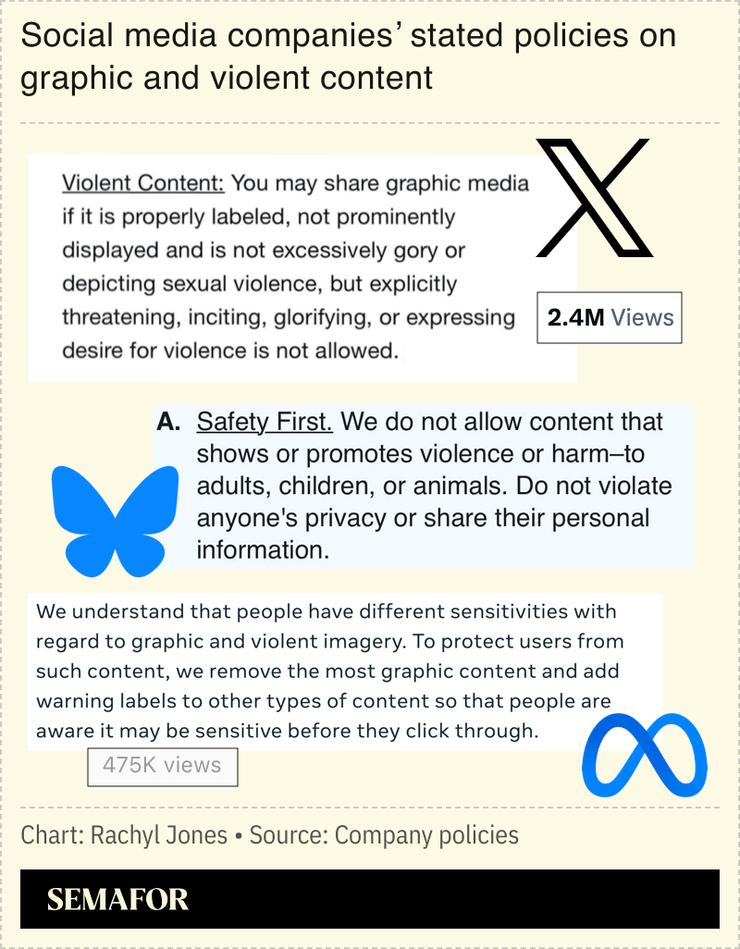The News
Widely accessible videos of right-wing activist Charlie Kirk getting shot this week indicate content moderation efforts are still hugely inadequate for some of the biggest social media companies.
Within minutes of the event, close-up videos of the shooting from multiple angles began circulating on social, including being pushed by algorithms into users’ curated “For You” feeds. By Friday morning, nearly two days later, companies were still struggling to handle the volume. We could find instances in searches across X, Bluesky, and Meta’s Threads, many without sensitive content labels — which seems to violate the companies’ own stated policies regarding graphic content.

One video on X depicting the moment Kirk was shot had been shared 1,800 times and garnered more than 2.4 million views before being taken down Friday morning, after 24 hours online. Another with 230,000 views is still available, with a sensitive content warning that wasn’t there Thursday. The numbers are mostly lower on Threads, though a search by Semafor on Friday found the videos were easier to locate on the Meta-owned platform. Meta told Semafor it was working to add sensitive content labels to videos of the shooting and remove posts glorifying it, per its policies.
Bluesky said it has been removing the close-up videos and suspending some accounts. X didn’t respond to a request for comment.
Know More
In recent years, social media companies have added AI to their content moderation practices to help remove graphic posts before people see them. But AI struggles with satire and context, requiring companies to continue employing human content reviewers — 15,000 in Meta’s case, a spokesperson said. Still, the response indicates real-time virality of media depicting violence is a problem too large to solve with existing practices.
That may only be exacerbated as AI-generated content becomes more indistinguishable from real videos, and misinformation reaches massive audiences before companies can flag it. The answer may lie in more and better AI-powered moderation systems that can match the speed of virality, though the timeline on those systems risks running out before the next crisis hits.


